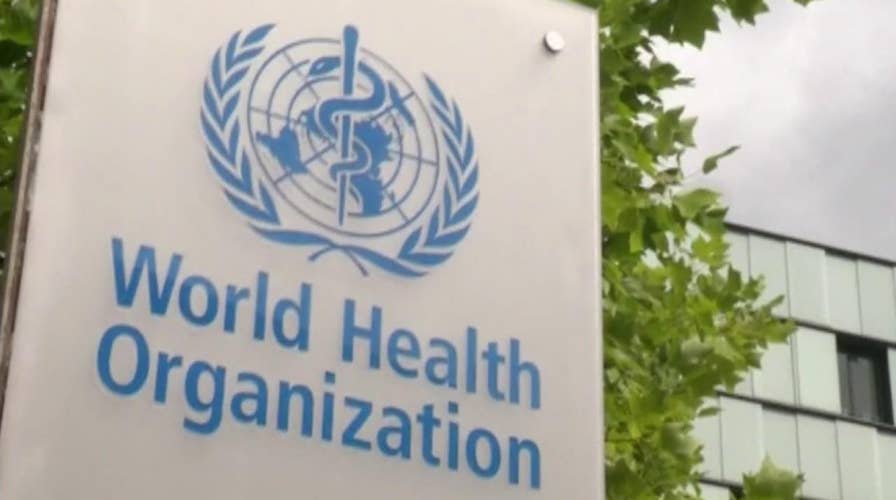WHO director hits back at Trump threat to defund agency
The head of the World Health Organization takes aim at President Trump's criticism of the agency; Gillian Turner reports.
Get all the latest news on coronavirus and more delivered daily to your inbox. Sign up here.
Scientists, including experts from Harvard and Yale, have launched a petition calling on the World Health Organization to provide guidance on indoor air quality in the battle against coronavirus.
"As COVID-19 continues to put pressure on health systems and the economy globally, the group calls on the WHO to review the extensive research that shows an indoor humidity level of between the 40% - 60% relative humidity (RH), is the optimum threshold for inhibiting the spread of respiratory viruses such as influenza,” they said in a statement obtained by Fox News. “This is a threshold that many public buildings drop below every winter.”
Relative humidity measures water vapor relative to the temperature of the air.
The scientists want the WHO to introduce clear guidelines on the lower level of relative humidity for public buildings.
“Ninety percent of our lives in the developed world are spent indoors in close proximity to each other. When cold outdoor air with little moisture is heated indoors, the air’s relative humidity drops to about 20%. This dry air provides a clear pathway for airborne viruses, such as COVID-19,” said Prof. Dr. Akiko Iwasaki Ph.D., of Yale, in the statement. “That’s why I recommend humidifiers during the winter, and why I feel the world would be a healthier place if all our public buildings kept their indoor air at 40 to 60% RH.”
“In light of the COVID-19 crisis, it is now more important than ever to listen to the evidence that shows optimum humidity can improve our indoor air quality and respiratory health. It is time for regulators to place management of the built environment at the very center of disease control,” added Dr. Stephanie Taylor, infection control consultant at Harvard Medical School and ASHRAE distinguished lecturer, in the statement. “Introducing WHO guidelines on minimum lower limits of relative humidity for public buildings has the potential to set a new standard for indoor air and improve the lives and health of millions of people.”
SCIENTISTS TRACK 'ALARMING' CORONAVIRUS SPREAD IN SOUTH KOREAN CALL CENTER
Fox News has reached out to the WHO with a request for comment on this story.
In a recent study, researchers at Yale explained that indoor humidity may slow the spread of coronavirus.
Relative humidity should not be confused with absolute humidity. Relative humidity “is a measure of the actual amount of water vapor in the air compared to the total amount of vapor that can exist in the air at its current temperature,” explains the National Weather Service on its website.
INDOOR HUMIDITY MAY SLOW CORONAVIRUS SPREAD, YALE SCIENTISTS SAY
This differs from absolute humidity, which is a measure of the actual amount of water vapor in the air, regardless of its temperature.
CLICK HERE FOR COMPLETE CORONAVIRUS COVERAGE
As of Monday morning, more than 3.53 million coronavirus cases have been diagnosed worldwide, at least 1,161,804 of which are in the U.S. The disease has accounted for at least 248,164 deaths around the world, including at least 67,886 people in the U.S.
Follow James Rogers on Twitter @jamesjrogers









































